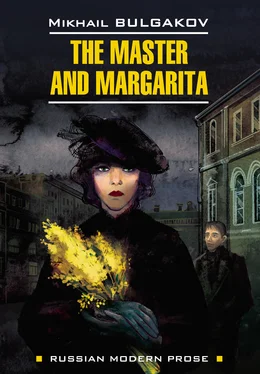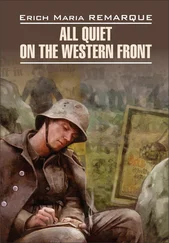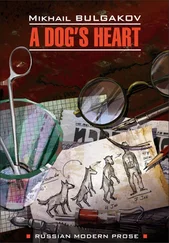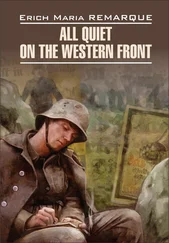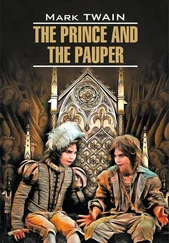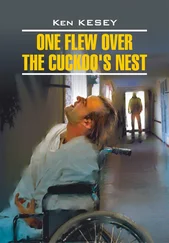“On what grounds will I be back here?” asked Ivan in alarm.
As if he had been expecting the question, Stravinsky sat down immediately and began:
“On the grounds that as soon as you appear at a police station in your long johns and say you’ve met a man who personally knew Pontius Pilate, you’ll be brought here instantly, and again you’ll find yourself in this very same room.”
“What have long johns got to do with it?” asked Ivan, looking around in dismay.
“It’s mainly Pontius Pilate. But it’s the long johns too. After all, we’ll take the institution’s linen off you and issue you with your own attire. And you were delivered to us wearing long johns. And in the mean time you weren’t intending to stop by at your apartment at all, although I even dropped you a hint about it. Next will come Pilate… and that’s your lot!”
At this point something strange happened to Ivan Nikolayevich. It was as if his will had broken, and he felt that he was weak, that he needed advice.
“So what’s to be done?” he asked, only this time timidly.
“Well, that’s super then!” responded Stravinsky. “That’s a most reasonable question. Now I’ll tell you what’s actually happened to you. Yesterday somebody very much frightened and upset you with a story about Pontius Pilate and with some other things. And then, over-fretful and overstrained, you went around town talking about Pontius Pilate. It’s perfectly natural that you’re taken for a madman. Your salvation now lies in one thing alone – complete peace. And it’s absolutely essential you remain here.”
“But he must be caught!” exclaimed Ivan, now imploringly.
“Very well, but why run around yourself? Set out on paper all your suspicions and accusations against this man. Nothing could be simpler than to send your statement on to where it needs to go – and if, as you suppose, we’re dealing with a criminal, it will all be cleared up very soon. But just one condition: don’t strain your head, and try not to think about Pontius Pilate too much. People can go around telling all sorts of stories! But you don’t have to believe everything!”
“Got it!” declared Ivan decisively. “Please issue me with a pen and paper.”
“Issue paper and a short pencil,” Stravinsky ordered the fat woman, but to Ivan he said: “Only, I don’t advise you to write today.”
“No, no, today, it? s got to be today,” Ivan cried anxiously.
“Well, all right. Only don’t strain your brain. If it doesn’t come out right today, it will tomorrow.”
“He’ll get away!”
“Oh no,” retorted Stravinsky confidently, “he won’t get away anywhere, I guarantee it. And remember that here you’ll be helped by every means, but without that help nothing will come out right for you. Do you hear me?” Stravinsky asked meaningfully all of a sudden [219] all of a sudden – внезапно
, and seized both of Ivan Nikolayevich’s hands. Taking them in his own and staring straight into Ivan’s eyes, for a long time he repeated: “You’ll be helped here… do you hear me?… You’ll be helped here… You’ll get relief. It’s quiet here, everything’s peaceful. You’ll be helped here.”
Ivan Nikolayevich unexpectedly yawned, his facial expression softened.
“Yes, yes,” he said quietly.
“Well, that’s super then!” Stravinsky concluded the conversation in his customary way and rose. “Goodbye!” he shook Ivan’s hand and, already on his way out, turned to the man with the little beard and said: “Yes, and try oxygen… and baths.”
A few moments later neither Stravinsky nor his retinue was in front of Ivan. Beyond the grille at the window, in the midday sun, the joyous and vernal wood stood out vividly on the far bank, while a little closer there glistened the river.
Nikanor Ivanovich Bosoi, Chairman of the Housing Association of No. 302 bis on Sadovaya Street in Moscow – where the late Berlioz had been resident – had been having the most dreadfully busy time, starting from the previous night, between Wednesday and Thursday.
At midnight, as we already know, the commission of which Zheldybin was a part came to the building, summoned Nikanor Ivanovich, informed him of Berlioz’s death, and set off with him for apartment No. 50.
There the sealing of the dead man’s manuscripts and property was carried out. Neither Grunya, the maid, who lived out, nor the frivolous Stepan Bogdanovich was in the apartment at that time. The commission announced to Nikanor Ivanovich that it would take the dead man’s manuscripts away for sorting, that his living space – that is, three rooms (the jeweller’s wife’s former study, living room and dining room) – was to pass into the hands of the Housing Association and that his property was subject to storage in the space referred to pending the announcement of the heirs.
The news of Berlioz’s death spread throughout the entire building with a sort of supernatural speed, and from seven o’clock in the morning of the Thursday people began ringingBosoi on the telephone and then also appearing in person with statements containing claims to the dead man’s living space. And in the course of two hours Nikanor Ivanovich received thirty-two such statements.
In them were included entreaties, threats, slanders, denunciations, promises to carry out refurbishment at people’s own expense, references to unbearably crowded conditions and the impossibility of living in the same apartment as villains. Among other things, there was a description, stunning in its artistic power, of the theft of some ravioli, which had been stuffed directly into a jacket pocket, in apartment No. 31, two vows to commit suicide and one confession to a secret pregnancy.
People called Nikanor Ivanovich out into the hallway of his apartment, took him by the sleeve, whispered things to him, winked and promised not to remain in his debt [220] to remain in debt – оставаться в долгу
.
This torment continued until just after midday, when Nikanor Ivanovich simply fled from his apartment to the House Committee’s office by the gates, but when he saw they were lying in wait for him there too, he ran away from there as well. Having somehow beaten off those who followed on his heels across the asphalted courtyard, Nikanor Ivanovich gave them the slip in entrance No. 6 and went up to the fourth floor, which was where this damned apartment No. 50 was located.
After recovering his breath [221] to recover breath – перевести дух
on the landing, the corpulent Nikanor Ivanovich rang the bell, but nobody opened the door to him. He rang again and then again, and started grumbling and quietly cursing. But even then nobody opened up. Nikanor Ivanovich’s patience cracked, and, taking from his pocket a bunch of duplicate keys that belonged to the House Committee, he opened the door with his masterful hand and went in.
“Hey, housemaid!” shouted Nikanor Ivanovich in the semidarkness of the hallway. “What’s your name? Grunya, is it? Are you here?”
No one responded.
Nikanor Ivanovich then got a folding measuring rod from his briefcase, after that freed the study door from its seal, and took a stride into the study. Take a stride he certainly did, but he stopped in astonishment in the doorway and even gave a start.
At the dead man’s desk sat a stranger – a skinny, lanky citizen in a little checked jacket, a jockey’s cap and a pince-nez… well, in short, him.
“Who would you be, Citizen?” asked Nikanor Ivanovich in fright.
“Well I never! Nikanor Ivanovich!” yelled the unexpected citizen in a jangling tenor, and, leaping up, he greeted the Chairman with a forcible and sudden handshake. This greeting did not gladden Nikanor Ivanovich in the slightest.
Читать дальше
